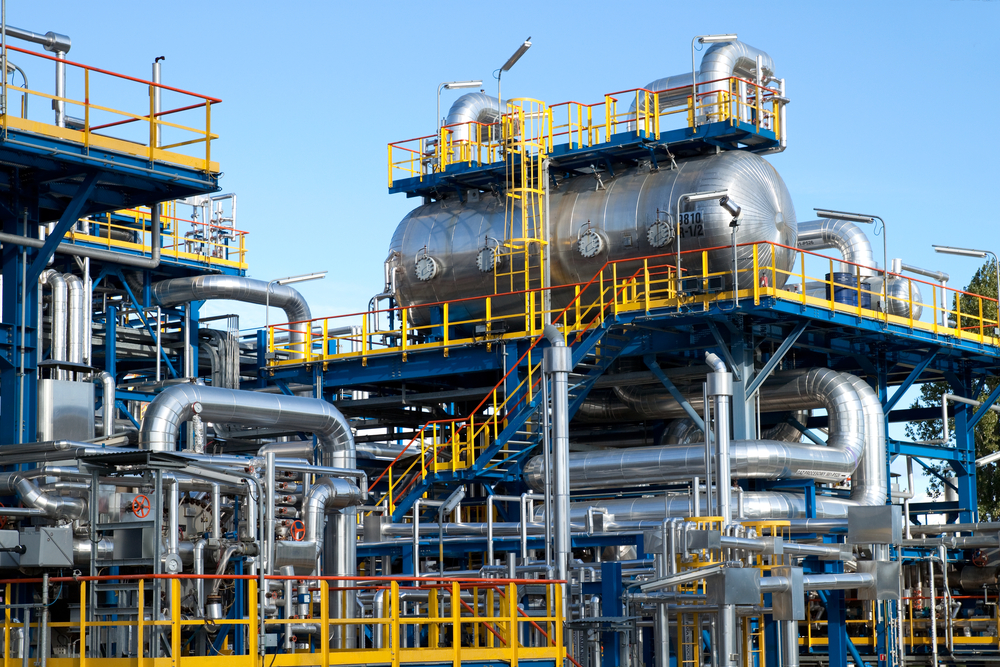The current oil and gas slump is the worst in post-war history. Excess supply has pushed onshore reserves to record levels, causing prices to crash to around £19.60 from a high of £80 a barrel in the summer of 2014. And things could be about to get worse. Analysts are predicting that oil prices could fall to between £17.60 and £7 a barrel, before they make any kind of recovery.
Declining oil prices may be good for the consumer, but they have hit the industry hard, particularly in areas like the North Sea where activity is at a low ebb. A report out in September by industry group, Oil & Gas UK, predicted North Sea spending will be cut from a record £14.8 billion in 2014 to £7 billion or less within three years. It estimates that 65,000 jobs have been axed in the North Sea oil sector since 2014 as a result, leaving a workforce of around 375,000.

So is it a terrible time to consider a career in the oil and gas industry? ‘I think the important fact to remember is that all markets suffer with similar periodic declines following periods of unsustainable growth, and like other sectors, the oil and gas industry will recover,’ said Grant Hutchinson, divisional manager of oil and gas at Capp Group, which is part of Matchtech. ‘Individuals shouldn’t be put off the oil and gas industry, as there will always be opportunities for skilled professionals in such a resource-hungry market.’
Alix Thom, Oil and Gas UK’s employment and skills issues manager, believes that while the sustained drop is making life hard for the UK oil and gas industry, this won’t last. ‘The industry, regulator and governments are all working hard to ensure that when the price does recover,’ he said. ‘The sector is in the best condition possible for activity and employment to be restored.’ With up to 20 billion barrels of oil and gas remaining to be recovered from the UK Continental Shelf, and government forecasting that our oil and gas needs will not diminish until 2030, Thom says this is very much an industry with a future.
Both Thom and Hutchison are confident that these vast reserves could once again be lucrative. Thanks to a flood of investment while the oil price was high, the North Sea has huge infrastructure in place. Like Oil and Gas UK, BP estimates that around 15 to 20 billion barrels of oil may be waiting to be discovered in the region. With better technology, companies are aiming to increase the percentage of oil they can get from reservoirs. And because their production costs have come down following a drop in demand, a number of firms are investing in major projects in anticipation of a recovery.

‘The current oil price has provided a cost-effective opportunity for operators to develop and revamp current processing plants,’ said Hutchinson. ‘With reduced manpower costs and the lower cost of feedstock reducing the amount of revenue lost through standard shutdowns, a number of operators are taking the opportunity to invest. This investment naturally provides a demand for a variety of skilled oil and gas workers...With an aging workforce, particularly within processing plants, there is certainly room for new talent to enter the market.
Oil and Gas UK estimates that output from the UK Continental Shelf last year rose between seven per cent and eight per cent compared with the previous year. Government data for production from the North Sea for the first 10 months of last year revealed that liquid output rose 10.6 per cent and gas was 6.1 per cent higher. These figures are partly down to new facilities coming on stream such as Taqa’s Cladhan field off Shetland.
BP, Maersk Oil and JX Nippon are also working together to develop the Culzean gas field at a cost of $3 billion. This is expected to support up to 6,000 UK jobs and create more than 400. The Culzean gas field is the largest new field discovered in the UK North Sea for a decade. It was discovered in 2008 and is expected to produce enough gas to meet 5 per cent of total UK demand at peak production in 2020 to 2021. ‘It will provide significant economic benefits to both the region and the rest of the UK for many years to come,’ the government claims.
Some argue that trend won’t last. For instance, Shell has already cut down on some of its investment in the region. But Elmer Schaap, the company’s graduate recruitment manager, says there remain a variety of roles for talented engineers, particularly in mechanical and marine engineering. ‘In Europe, attractive opportunities for graduates exist across our organisation, in particular in the Netherlands and the UK, in our Upstream and Downstream operations and our global Projects and Technology division,’ he said. ‘We need core engineering skills…We also look for evidence of leadership potential, particularly in graduates.’
Andrew Duffy, a recruitment consultant at Petroplan, says that while oil prices are low, the market has a track record of rebounding. He advises engineers who want a career in the industry to carefully plan their career path, get the relevant qualifications and build relationships with industry specialists. ‘The most sought after skills are always related to the most technical positions,’ he said. ‘Being a good engineer is about creativity, thinking outside the box and good project management skills’
Yasmin Ali, a former IET Young Woman Engineer of the Year finalist, agrees. ‘There are definitely still opportunities out there,’ she said. ‘In the UK North Sea, decommissioning of ageing assets will become a large area of focus. This is something we, as an industry, don’t have a lot of experience in. We will have to tackle the issue very soon as more and more oil and gas fields reach the end of their lives. These large scale projects will require engineers to solve the technical challenges presented in a cost effective, safe, and environmentally sustainable way.
‘If it’s an area that interests you, don’t be put off by the declining oil prices, it’s an opportunity for the industry to change for the better.’




Project to investigate hybrid approach to titanium manufacturing
What is this a hybrid of? Superplastic forming tends to be performed slowly as otherwise the behaviour is the hot creep that typifies hot...